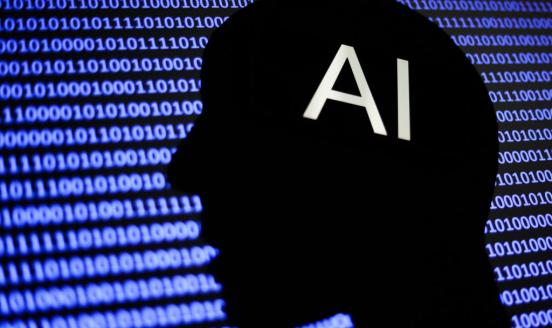
Digital economy, labour markets, skills and health
The rapid pace of digital and innovative change can provide us with new tools to address complex policy challenges
Technology adoption in the current crisis could play a major role in economic recovery. The right mix of industrial policies, single market policies and competition policy continues to be an important question. Issues such as global value chain disruptions caused by semiconductor shortages posed a challenge for the digital sector and for the economy at large.
Against this backdrop, our scholars have focused their research on multiple areas, including COVID-19’s impacts on digital technology adoption, the digital market act, the chips shortage crisis, data usage and international data transfers, and innovation in the health sector
Digital economy and innovation

Inclusive digital economy: a round-up of project research
The rise of automation, remote employment and a diversifying workforce will necessitate a shift in how we interact with new technology

Economic arguments in favour of reducing copyright protection for generative AI inputs and outputs
The licensing of training inputs slows down economic growth compared to what it could be with competitive and high-quality GenAI

Labour market outlook dashboard
This dashboard offers a comprehensive overview of the evolution of key labour market outcomes across EU member states, from 2006 onwards

The comparison between the European and American innovation systems is hardly encouraging for Europe

Exposure to generative artificial intelligence in the European labour market
Women, highly educated and younger workers are more exposed to generative AI. Policy can intervene on both the labour supply and labour demand side
Upcoming events

AI in the labour market: balancing disruption and development
How can we maximise the benefits of AI while addressing its potential negative impact on income distribution and labor markets?

Talks@Bruegel: China's tech regulations and global tech rivalry with Angela Zhang
How China governs Big Tech and regulates Artificial Intelligence?

Talks@Bruegel: How the US weaponised the world economy with Abe Newman
How does recent research illuminate the US' influence on global surveillance and control, and what does this imply for international economies?
Labour markets, skills and health

The Letta report: an assessment of the energy proposals
The report has the potential to substantially impact the European Union's strategic agenda from 2024-29

Exporte nach Russland wirksamer kontrollieren

What visions for Europe? Unpacking EU parties’ economic strategies
The EU elections are around the corner. What economic plans are the parties advocating for?

European natural gas imports
This dataset aggregates daily data on European natural gas import flows and storage levels.

Halftime for the European Union’s recovery fund: is the glass half full or half empty?
How has the RRF performed at its halfway point in terms of implementation, results orientation and additionality for future EU funding instruments?
Events

The macroeconomics of decarbonisation
At this event we will launch the book "The Macroeconomics of Decarbonisation: Implications and Policies"
Podcasts

The complexities of AI regulation
How to balance legal certainty with evolving technology and international competition?

South Korea's semiconductor strategy
Economic ties are being reshaped by the semiconductor industry's evolution

Skills anticipation for the green transition
How do we build a workforce that has the skills needed for the future and how do we ensure the process works for everybody?

The role of civil society in skills development
How can civil society help close the skills gap?